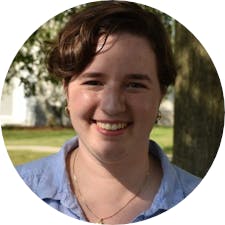The college and the wider Middlebury community are closely collaborating to prepare for the rapidly-mounting Covid-19 crisis. Following the college’s decision to suspend in-person classes and evacuate the majority of students on March 10, the college has leveraged resources and unique opportunities that come with the mass exodus of students to support local organizations.
The college has partnered with several homeless shelters to feed displaced Addison County residents and is preparing college facilities to aid Porter Medical Center as it copes with the expected influx of patients.
“The college, town, and hospital are stronger together than we are alone,” President Laurie Patton said in an email to the Campus. “It's important that we collaborate and assure the community that we are doing so as we face Covid-19.”
Donating meals
Prior to students leaving campus, the Center for Community Engagement (CCE) worked with commons coordinators and facilities staff to create drop-boxes in each commons office, where departing students could leave non-perishable food items for donation to the Helping Overcome Poverty’s Effects (HOPE) food pantry.
Donations also came from the dining halls. Dining Services were unable to cancel some food orders as the college decided how long and in what capacity the dining halls would remain operational. While it is standard protocol for the dining halls to donate excess food to HOPE, Charter House and Community Suppers during breaks, the sudden and dramatic decrease of students created a much larger surplus than normal.
[gallery ids="49380,49381"]
Instead of letting the food go to waste, Dining Services, the CCE and several local organizations worked together to distribute it to those in need throughout the Middlebury community, said Director of Media Relations Sarah Ray on behalf of Bo Cleveland, assistant director of Dining. Dining Services donated perishable and dairy products to the Charter House, a local homeless shelter, and gave non-perishable goods to the HOPE food pantry.
The CCE worked with the United Way of Addison County to convene a group of local service providers and discuss how to sustain these services during this crisis. Through this group, the CCE was able to identify areas of community need, according to Jason Duquette-Hoffman, assistant director of the privilege and poverty academic cluster at the CCE.
On March 20, the Charter House and John Graham Shelter had to move several former residents to local hotels and motels due to the health risk of the close living quarters of the shelters. As a result, they lost access to the meals that the shelters normally provide them. The CCE coordinated with Dining Services and the shelters' volunteers to feed the 14 evacuees, according to Duquette-Hoffman.
After the Charter House closed its warming shelters entirely on March 21, sending the remaining guests to hotels and motels, demand for alimentation assistance rapidly spiked. Again, Middlebury stepped in to close the gap, providing 42 lunches and dinners on March 21 and 42 breakfasts and lunches and 46 dinners March 22, according to Cleaveland.
The following week, on March 24, Executive Vice President for Finance and Administration David Provost committed the college to providing up to 50 meals to those in need each day as long as the dining halls remain operational, according to Duquette-Hoffman.
“In a time when things were changing nearly by the minute, Dining Services was working throughout the weekend and in constant contact with us and community colleagues to understand, adapt to and meet these needs,” Duquette-Hoffman said. “I am deeply grateful for their work and the support of the college in so readily meeting this most critical need.”
Individual staff members also stepped up to address community needs. Dining staff at Proctor packaged and provided meals for four families of migrant dairy workers, according to Cleaveland.
Lending college spaces
The college is temporarily housing Porter Medical Center clinical employees in Munford House residential hall. The employees are all healthy, and none are suspected to have been exposed to Covid-19. By providing them with isolated housing, however, the hospital and college hope to reduce the risk that they will become infected by the larger community and endanger the residents of Helen Porter Nursing and Rehabilitation Center with whom they work, or vice versa. The employees will move into Munford today, according to a campus-wide email.
A greatly diminished campus population has dramatically decreased the demand for dining and facilities’ labor. In order to retain staff, the college is also prepared to assign extra facilities and dining staff to work in the town and hospital if they cannot find tasks on campus, according to a campus-wide email on March 18. Given safety and health concerns, staff members would not be mandated to work in this capacity, but instead asked to help if needed, according to Provost.
As Covid-19 spreads throughout Vermont, Middlebury is prepared to repurpose Chip Kenyon Arena to host a Department of Health mobile hospital unit in the event that coronavirus cases exceed Porter Medical Center’s current capacity. Porter hosts 25 acute care beds under normal circumstances. The mobile hospital unit at Kenyon could nearly double that capacity, according to the Addison Independent.
“The College’s guiding principle is to be ‘on call’ for the community and help in any way it can,” Patton wrote in a joint letter written with Brian Carpenter, chair of the Middlebury select board, and Thomas Thompson, interim president of Porter Hospital.
To that end, the college is preparing for scenarios in which it would “share its building, dining, and other infrastructure resources” with the town and hospital, Patton explained in her letter. While the administration is still consulting with town and hospital officials, Patton expects they will be able to announce more details soon.
“This work is so critical not only because this community is where we study and learn, but because it is where we (faculty, staff and students) work, live and make our homes, said Duquette-Hoffman, “It is part of what makes Middlebury, Middlebury.”

Sophia McDermott-Hughes ’23.5 (they/them) is an editor at large.
They previously served as a news editor and senior news writer.
McDermott-Hughes is a joint Arabic and anthropology and Arabic major.
Over the summer, they worked as a general assignment reporter at Morocco World News, the main English-language paper in Morocco.
In the summer of 2021 they reported for statewide digital newspaper VTDigger, focusing on issues relating to migrant workers and immigration.
In 2018 and 2019, McDermott-Hughes worked as a reporter on the Since Parkland Project, a partnership with the Trace and the Miami Herald, which chronicled the lives of the more than 1,200 children killed by gun violence in the United States in the year since the Marjory Stoneman Douglas High School shooting in Florida.




